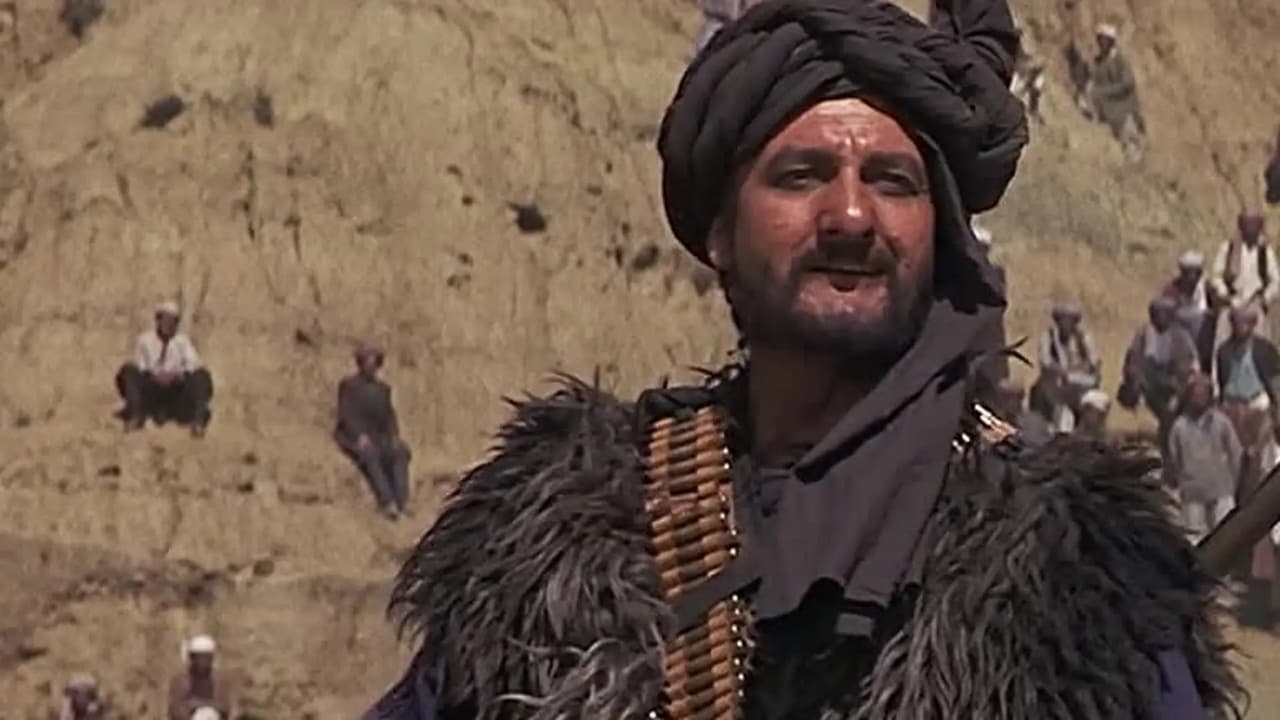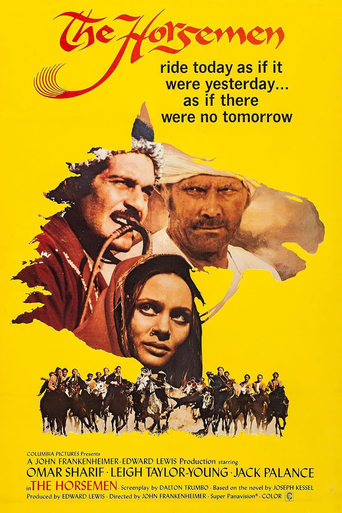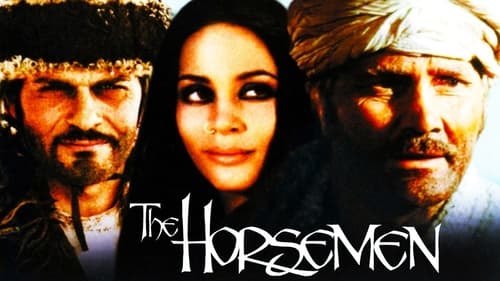


This is an example of taking a book and adapting it to the large screen and realising with hindsight that it works better as a book . I'm not familiar with Joseph Kessel's original novel but the comments on this page state that the film is very faithful to the book and that might be the problem . It's a story that concentrates on obsession at winning at all costs and Uraz the protagonist is a universal metaphor for all mankind that when you want to win something it can cost you very dearly You can perhaps see why the producers thought this would make a great film with its exotic locations and the fact it was st in Afghanistan before the land reforms the mid 1970s that led to civil war and the subsequent Soviet intervention is what made me seek out the film if only to understand Afghan culture better and the film does contain an intelligent opening when the audience are led to believe they're watching a scene from the 17th Century only to the Afghan rug pulled from under their feet as a jet plane screams over head . Likewise there's some spectacular scenes involving the sport of buzkashi where horsemen literally fight over the carcass of a dead goat and there's some impressive cinematography featuring the Afghan landscape but the inherent problem with the film is the character driven narrative which doesn't kindly lend itself to the medium of cinema
... View MoreThis is a human condition action adventure that takes place in modern time( meaning 1971) Afghanistan. The film starts by showing how far back in time they are. Everybody is riding around on horses while planes are driving above them. In this country a proud (the best word would be prince but it doesn't exactly fit) Uraz (played by Omar Sharif, mostly known as that guy who had the lead in Doctor Zhivago) sets out to this weird horse tournament on the request of his father, a elderly clan leader and master of the sport played by the great Jack Palance.It's made obvious from the start that though this man might be proud and even quite noble (he always bets on the weakest), he is in fact cruel to servants and have a rather nihilistic view on life. When he manages to fall off his horse and break his leg he feels a great dishonor and sets out to find the hardest and deadliest road home. On the way everything that is good in humans are questioned! The film has a very different view of the world than most others, at least this early in cinema. Many of the characters are so shady it will almost make you sick. I must say that I did not like these people as humans, though I did like their characters, inhuman behavior and cruelty is something I take a huge interest in. For those of you who enjoy to travel to different worlds and can enjoy and love films even if they perhaps have a different stand than your world view, this is the film for you.I was quite taken by it I must say. My second favorite Frankenheimer picture to date, meaning that I thought it was better than great films such as The Manchurian Candidate, The Train and Seven Days in May. The colors are great and the mood and pacing is very intense. Most of the frames are quite beautiful. The acting is very good! And it's philosophy as a whole is rather good too but I will not give away anything about how this film turns out but I will say that I thought it was fabulous. A genius film! A masterpiece! You should definitely check it out. A true gem!
... View MoreThere is so much of interest in this compelling film, set in Afghanistan. Based on the book by Joseph Kessells, a writer of rare insight.Centered around the ancient game of Buzkashi, played on horseback, and only in the three northern provinces of Mazar-i-Sharif, Maimana and Kataghan. [The game had it's origin in a training routine instituted by Ghengiz Khan, which both conditioned his men for warfare and provided a means of feeding his army. A very large circle was formed by his warriors and as the circle closed no animal was permitted to escape.]There are some terrific scenes of the first "Royal Buzkashi" played on Bagrami Plain, just outside Kabul, which had been decreed by the king. Also some great footage of the country, depicting the beautiful and varied terrain encountered as Uroz makes the self-imposed and dangerous journey back to his home province in the North.The interplay of all the characters is an education in understanding the powerful role human emotion and upbringing play in all our lives, as both Tursen(the father) and Uroz(the son) attempt to come to terms with their own harsh anger and pride. The consequences spill over and embroil other individuals in the story. The story also gives some insight into the different way of thinking engendered by the cultural mix of religion,relatively isolated living, and living in a harsh environment where survival can be pretty raw.Contrast is drawn by the mix of ancient and modern. One such scene has Tursen (Jack Palance),who as Head of Osman Bey's stable is addressing the chopendoz,(players of Buzkashi), pauses to look upwards at a jetliner passing overhead whilst he stands on "The Roof of the World". Another takes place in the modern hospital in Kabul.Both Palance & Sharif give of their finest, very well supported by a great character cast.A dramatic part of the story unfolds in the Bamian Valley, where Uroz gambles & loses the very thing he later realise he loves and wants back. Historically this part of the film contains important footage of the giant Budhas that were carved into the cliffside, until deliberately destroyed by Talliban militia.All in all, an excellent and enjoyable film and I am surprised it has not been shown on Television or re-issued on disc, as the world focussed on that area just a short time ago.
... View MoreNot having seen this film since its initial release, I have vague moments of recollection (I was eleven at the time) but, after all these years, I still remember this film, a few scenes-even the theater where I saw it-so that has to count for something. We, my parents, and myself went to many, many movies so it was not unusual for me to come along, even at decidedly adult fair such as this. My mother had a crush on Omar-notwithstanding that they share the same passion for bridge. Frankenheimer had a good reputation for producing and directing interesting, offbeat films that hit as often as they miss-The Manchurian Candidate, Grand Prix, and Black Sunday come to mind. So, we gave this film a shot.While I do not remember the plotline to any great extent, what I do remember quite vividly was that this film took place in Afghanistan, and features quite prominently the national sport of Buzkashi-a sport whereby riders on horses attempt to deposit the carcass of a lamb in a circle. Also, this has what is quite honestly the best performance in a film by Omar Sharif you will ever find. He plays a great rider who is injured early in the film. He broads about a lot but finally finds redemption by returning to the sport that nearly killed him for that one last ride. I do not remember if he makes it through alive.Buzkashi is an old, old brutal sport/ritual full of tradition and ceremony. The film took great pains to present this dying spectacle as realistically as possible and is the great set piece to the film. A true Man's man sport, it is not for the fainthearted. For me, at eleven, I was not used to cinematic `realism' even though by then I had seen hundreds of films. Perhaps it is why I remember it so for it made quite an impression.The film was transferred to video but is long out of print and only available through collectors. It has not made it to DVD, unfortunately. I have not seen it since it initial release.Still, in a long career for Frankenheimer, this is a film that should not be forgotten and is probably one of his best.
... View More